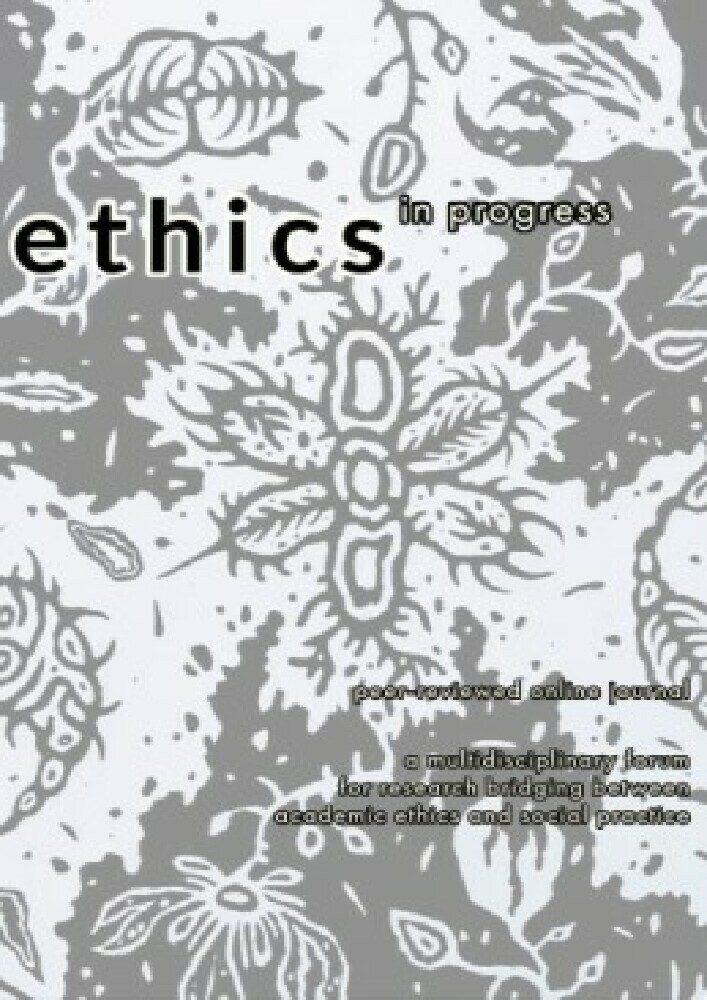Abstract
Hegel’s Phenomenology of Spirit develops not only the idea of absolute knowledge but also the notion of an inner criterion [Maßstab] of the spirit. The inner criterion or norm of knowledge is what, in the end of the speculative process, appears as the form of absolute knowledge. Experience and inner criterion are responsible for the development of the consciousness that has to become itself. Becoming and absolute, temporality and timelessness are the substance that becomes and is subject. The actuality of this method of analysis of spirit will be shown and discussed in this essay.
References
Hegel G. W. F. 1807/2018. The Phenomenology of Spirit, trans. T. Pinkard. Cambridge: Cambridge University Press. [Page numbers follow G. W. F. Hegel, Phänomenologie des Geistes. Gesammelte Werke, GW IX, ed. by W. Bonsiepen & R. Heede. Hamburg: Felix Meiner, 1980].
Hölderlin F. 1795/2009. Essays and Letters, ed. by J. Adler & C. Louth. London: Penguin Books.
Baptist G. 2006. “Das absolute Wissen. Zeit, Geschichte, Wissenschaft,” in D. Köhler & O. Pöggeler (Eds.), G. W. F. Hegel. Phänomenologie des Geistes (pp. 245–261). Klassiker Auslegen, Vol. XVI. Berlin: Akademie Verlag.
Honneth A. 1994. Kampf um Anerkennung. Zur moralischen Grammatik sozialer Konflikte. Frankfurt am Main: Suhrkamp.
Jaeschke W. 2020. Hegels Philosophie. Hamburg: Felix Meiner.
Kloc-Konkołowicz J. 2015. Anerkennung als Verpflichtung. Klassische Konzepte der Anerkennung und ihre Bedeutung für die aktuelle Debatte. Würzburg: Königshausen & Neumann.
Lerro E. 2017. Beyond the Bildungsroman Illusion: Representations of Intellectual Development in the Works of George Eliot and G. W. F. Hegel. Princeton, NJ: Princeton University, ProQuest Dissertations Publishing.
Moder G. 2013. Hegel und Spinoza: Die Negativität in der gegenwärtigen Philosophie. Wien: Turia + Kant.
Okazaki R. 2021. Zur Funktion des absoluten Geistes in Hegels Phänomenologie. Berlin: Duncker & Humblot.
Pöggeler O. 1973. “Die Komposition der Phänomenologie des Geistes,” in H. F. Fulda & D. Henrich (Eds.), Materialien zu Hegels Phänomenologie des Geistes (pp. 327–426). Frankfurt am Main: Suhrkamp.
Quante M. 2011. Die Wirklichkeit des Geistes. Studien zu Hegel. With an Introduction by R. Pippin. Berlin: Suhrkamp.
Siep L. 2014. Hegel’s Phenomenology of Spirit [Der Weg der „Phänomenologie des Geistes“: ein einführender Kommentar zu Hegels „Differenzschrift“ und zur „Phänomenologie des Geistes“], trans. D. Smyth. Cambridge: Cambridge University Press. (Original work published 2000, Frankfurt am Main: Suhrkamp).
Spinoza B. 1677/2020. Ethics, Geometrically Demonstrated and Divided into Five Parts, trans. G. Eliot. In C. Carlisle (Ed.), Spinoza’s Ethics. Princeton: Princeton University Press.
Stekeler-Weithofer P. 2014. Hegels Phänomenologie des Geistes. Ein dialogischer Kommentar. Vols. I/II. Hamburg: Felix Meiner.
Waibel V. L. 2012. “Philosophieren als Weg. Anmerkungen zu Spinoza und Fichte mit einem Exkurs zu Hölderlin,” in idem (Ed.), Affektenlehre und amor Dei intellectualis. Die Rezeption Spinozas im Deutschen Idealismus, in der Romantik und in der Gegenwart (pp. 200–230). Hamburg: Felix Meiner.
Waibel V. L. 2018. “Der Begriff der Substanz 1804/05 – Hegels Konzeption in Absetzung von Kant, Fichte und Spinoza,” in V. L. Waibel, C. Danz & J. Stolzenberg (Eds.), System der Vernunft – Kant und der Deutsche Idealismus: IV. Systeme in Bewegung: Systembegriffe nach 1800-1809 (pp. 183–214). Hamburg: Felix Meiner.
Weisser-Lohmann E. 2006. “Gestalten nicht des Bewußtseins, sondern einer Welt – Überlegungen zum Geist-Kapitel der Phänomenologie des Geistes,” in D. Köhler & O. Pöggeler (Eds.), G. W. F. Hegel. Phänomenologie des Geistes (pp. 185–209). Klassiker Auslegen, Vol. XVI. Berlin: Akademie Verlag.





